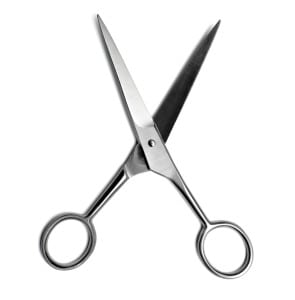
Today I’m sharing a guest post from Stuart Nachbar, who is the president of EducatedQuest.com, an excellent college admissions blog and guide to some of the best values in higher education. He can be contacted at stuart@educatedquest.
I thought you’d appreciate Nachbar’s advice about how to evaluate an institution’s career placement services. If you haven’t already read it, please see my previous post on career services here:
Why Are College Career Service Offices So Lame?
One more thing…I am excited about an online course that I’ve created to help you shrink the cost of college. Scroll to the bottom of this post to learn more about this six-week course that will start in February! Lynn O’Shaughnessy
Questions to Ask a College Career Services Office
• When does the school’s career services office first engage students? Is it to help them choose a major?
More and more the career services office has become involved in “University 101″ classes, working with faculty instructors and the student peer mentors to include units on resume preparation and/or research on careers and employers. Some schools have bought software that allows a student to do online searches by major for jobs or careers.
• How many employers come to campus each year through job fairs and on-campus interviewing?
The number of fairs is more important, because fairs are organized for internships as well as full-time jobs by major. A large state university  will typically host job fairs for business/liberal arts, engineering, health care, government/non-profit and education. Other schools also have job fairs through the major departments where the faculty is well connected. For example, the University of Rhode Island’s College of Pharmacy handles a job fair for undergrads in pharmaceutical sciences and their pharmacy doctoral students.
will typically host job fairs for business/liberal arts, engineering, health care, government/non-profit and education. Other schools also have job fairs through the major departments where the faculty is well connected. For example, the University of Rhode Island’s College of Pharmacy handles a job fair for undergrads in pharmaceutical sciences and their pharmacy doctoral students.
• What majors are most sought by employers?
I ask this because I want to know how the employers know of the school. For example, Purdue is well known to recruiters for engineering, computer science and agriculture within the Fortune 500 and consulting forms. The undergraduate business program is a “management” degree that has been popular with manufacturing firms for decades.
Purdue may be a better school for a student who is interested in working for a consumer products company than, for example, Indiana, which has aggressively targeted corporate finance and investment banking positions.
• What cities/states do most employers come from? Does this match with student interest in terms of places where they would like to work?
State schools such as Indiana, Miami (OH), New Hampshire, Penn State, Purdue, Rhode Island and West Virginia now attract at least 30 percent of their students from outside their state. Sometimes, especially if they come from California or New York, students will want to return home to work.
It helps parents to know if the career services office has connections or has worked with alumni in those cities. Sometimes schools will also collaborate on live or virtual employment events in popular cities. The Big East schools, for example, host a live career fair in New York City in conjunction with the Big East basketball tournament.
• How many jobs were posted last year?
 I am more interested in a trend, whether the number of jobs posted has gone up or down, as well as the numbers for internships and full-time jobs, if the school separates them.
I am more interested in a trend, whether the number of jobs posted has gone up or down, as well as the numbers for internships and full-time jobs, if the school separates them.
At a good school the volume should go up, if for nothing else because the career center has made it easy for employers to register and post online for no charge.
• What do employers like most about your students?
I’m curious to know what the employers report in a survey as opposed to anecdotes. To be honest, I get more anecdotes. But the appearance of the office and how they manage the interview rooms (for larger schools) tells a lot.
• What does your office offer them that comparable schools do not?
Career service directors at the larger schools have placed more emphasis on coordination to help the employer get more from their campus visits. While interview schedules may be set across different schools, there is more care taken to help the employer complete all interviews for all positions over a period of two or three days as opposed to several repeat visits.
• Is your school a part of job networks or job fairs in partnership with other schools?
Both large and small schools share jobs across regions, states or sports conferences. Networks are more beneficial for smaller schools that cannot fill on-campus interview schedules on their own and/or do not have a large alumni base.
Events can be live, for example, a job fair at a conference center in a large city where the students want to work, or they may be online. “Last chance” events, where employers are still seeking to fill positions after the end of March, are popular for online platforms.
Do You Want to Shrink the Cost of College?
Michelle Kretzschmar of Do It Yourself College Rankings and I have been working hard on developing an online class for parents that will explain how to make college more affordable. We have designed this six-week course to help make you an empowered consumer as you navigate your child’s college choices.
This class will also be extremely valuable for high school counselors and independent college consultants, who want to help their families find generous schools.
Our class starts Feb. 12 and we will be sharing more details soon. If you are interested in learning more about the class, please email me (Lynn@TheCollegeSolution.com) and I will put you on the notification list.
We hope to see you in February!

